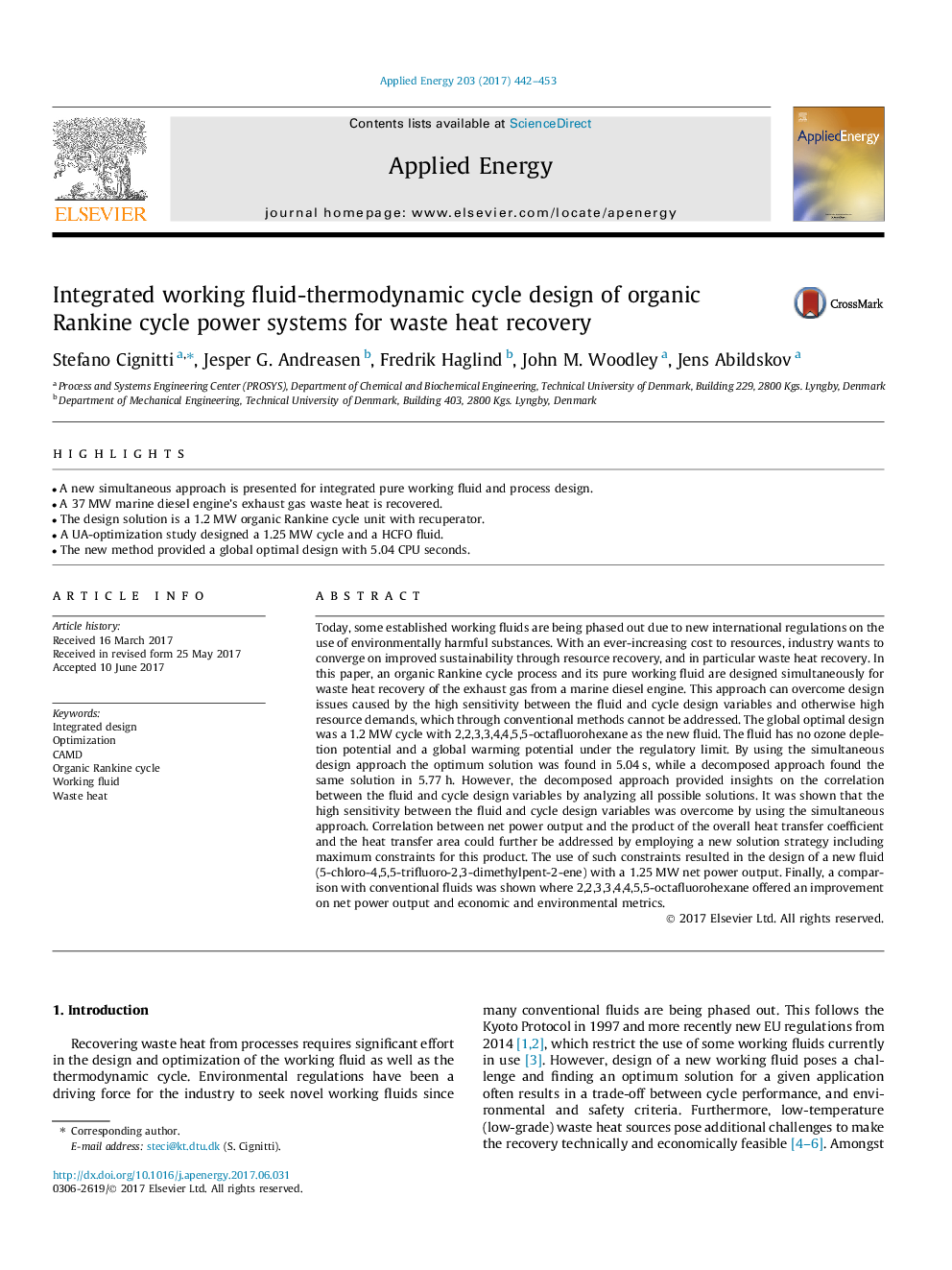| Article ID | Journal | Published Year | Pages | File Type |
|---|---|---|---|---|
| 4915781 | Applied Energy | 2017 | 12 Pages |
Abstract
Today, some established working fluids are being phased out due to new international regulations on the use of environmentally harmful substances. With an ever-increasing cost to resources, industry wants to converge on improved sustainability through resource recovery, and in particular waste heat recovery. In this paper, an organic Rankine cycle process and its pure working fluid are designed simultaneously for waste heat recovery of the exhaust gas from a marine diesel engine. This approach can overcome design issues caused by the high sensitivity between the fluid and cycle design variables and otherwise high resource demands, which through conventional methods cannot be addressed. The global optimal design was a 1.2Â MW cycle with 2,2,3,3,4,4,5,5-octafluorohexane as the new fluid. The fluid has no ozone depletion potential and a global warming potential under the regulatory limit. By using the simultaneous design approach the optimum solution was found in 5.04Â s, while a decomposed approach found the same solution in 5.77Â h. However, the decomposed approach provided insights on the correlation between the fluid and cycle design variables by analyzing all possible solutions. It was shown that the high sensitivity between the fluid and cycle design variables was overcome by using the simultaneous approach. Correlation between net power output and the product of the overall heat transfer coefficient and the heat transfer area could further be addressed by employing a new solution strategy including maximum constraints for this product. The use of such constraints resulted in the design of a new fluid (5-chloro-4,5,5-trifluoro-2,3-dimethylpent-2-ene) with a 1.25Â MW net power output. Finally, a comparison with conventional fluids was shown where 2,2,3,3,4,4,5,5-octafluorohexane offered an improvement on net power output and economic and environmental metrics.
Related Topics
Physical Sciences and Engineering
Energy
Energy Engineering and Power Technology
Authors
Stefano Cignitti, Jesper G. Andreasen, Fredrik Haglind, John M. Woodley, Jens Abildskov,
